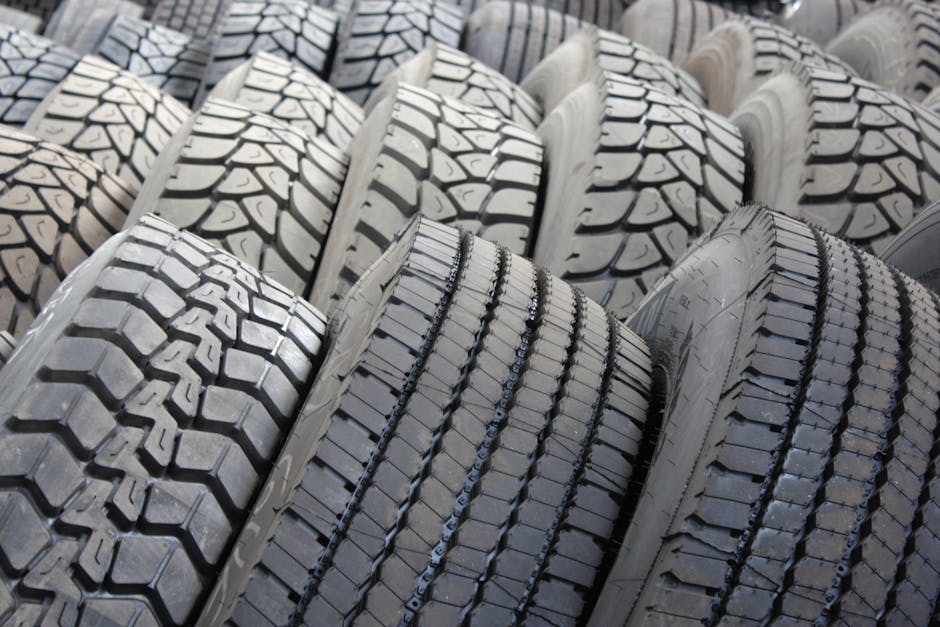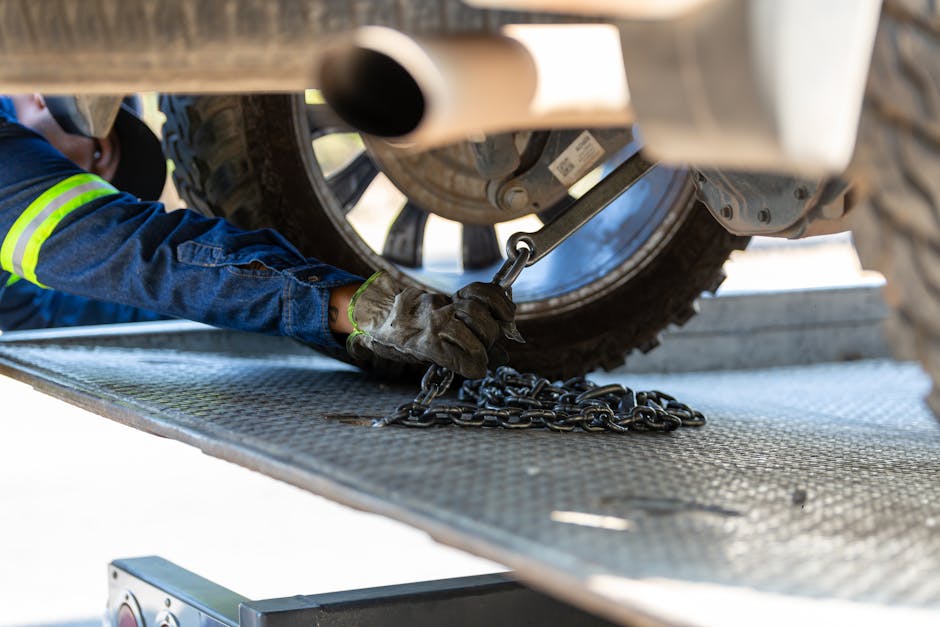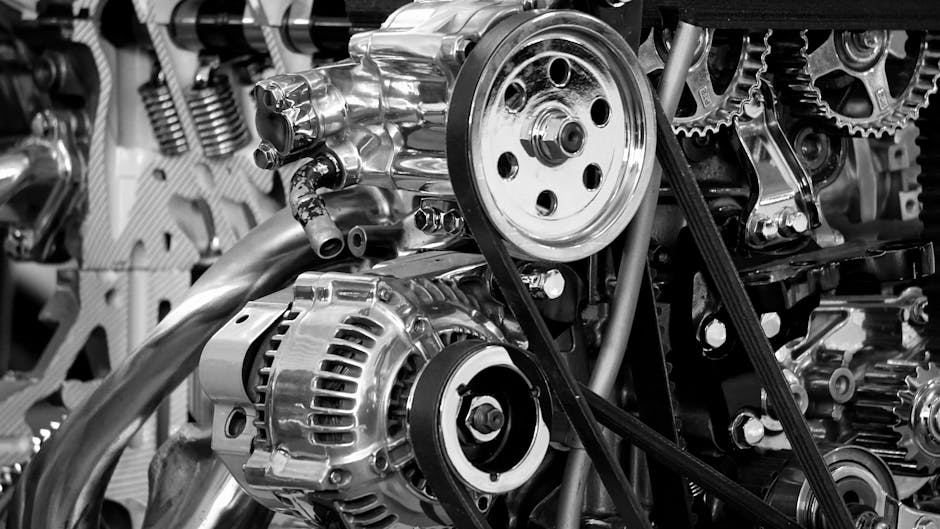Stay Safe: Vehicle Maintenance You Need
Did you know that nearly 30% of car accidents are due to mechanical failures? Keeping your vehicle well-maintained can save you from accidents and costly repairs. It’s not just about getting from point A to point B; it’s about safety and reliability.
In this article, we’ll cover essential vehicle maintenance tips you should follow. Whether you’re a new driver or have been on the road for years, this guide is for you!
Why is Vehicle Maintenance Important?

Proper vehicle maintenance is crucial for several reasons:
- Safety: A well-maintained car is safer to drive.
- Cost-Effectiveness: Regular checks can save you money on repairs.
- Longevity: Taking care of your vehicle can extend it’s life.
Just like you visit the doctor for regular check-ups, your car needs the same attention. Ignoring maintenance can lead to bigger problems down the road.
What Should You Check Regularly?

Keeping your vehicle in top shape requires regular checks. Heres a handy checklist:
- Oil Level: Check it every month. Oil keeps the engine running smoothly.
- Brakes: Listen for squeaking. If you hear it, get them checked!
- Battery: Check for corrosion. A weak battery can leave you stranded.
- Tires: Inspect tread depth and air pressure. Properly inflated tires improve fuel efficiency.
- Lights: Regularly test headlights, brake lights, and turn signals. Visibility is key!
These checks take only a few minutes but can prevent serious issues. Next, lets dive deeper into each area.
How Often Should You Change Your Oil?

Changing your oil is one of the most critical parts of vehicle maintenance. Most experts recommend changing it every 3,000 to 5,000 miles. However, it can depend on your vehicle type and driving habits.
If you often drive in stop-and-go traffic or tow heavy loads, consider changing your oil more frequently. And remember: dirty oil can harm your engine over time.
Why Are Brakes So Important?

Your brakes are your first line of defense in an emergency. Heres what to look for:
- Listen for unusual sounds, like squeaking or grinding.
- Feel for vibrations when pressing the brake pedal.
- Pay attention to any warning lights on your dashboard.
If any of these symptoms arise, it’s time to consult a professional. Trust us; you don’t want to ignore brake issues!
When Should You Replace Your Battery?
A car battery typically lasts about three to five years. However, extreme temperatures can affect it’s lifespan. Hot weather can evaporate the battery’s fluids, while cold temperatures can make it less efficient.
Check your battery regularly for:
- Corrosion around terminals.
- Swelling or leaking.
- Difficulty starting your car.
If you notice any of these issues, it’s wise to replace your battery before it fails. You don’t want to be late for work because your car won’t start!
What Should You Know About Tires?
Good tires mean better handling and safety. Aim to check the pressure at least once a month. Under-inflated tires can reduce fuel efficiency and lead to blowouts.
Here are some tips for tire maintenance:
- Check tread depth using the penny test: Insert a penny into the tread. If you can see Lincoln’s entire head, it’s time for new tires.
- Rotate your tires every 5,000 to 7,500 miles to ensure even wear.
- Inspect for cracks or cuts that could lead to leaks.
Tires are the only part of your car that touch the road. don’t overlook them!
How Can You Ensure Your Lights Are Working?
Visibility is critical when driving at night or in poor weather. Regularly check all your lights, including headlights, taillights, and turn signals.
Heres a quick way to check:
- Ask a friend to help you by standing outside the car while you test the lights.
- Look for any dim or burnt-out bulbs.
- Replace any faulty bulbs immediately.
Driving with faulty lights can put you, your passengers, and others at risk.
What Are Warning Lights Trying to Tell You?
Your dashboard warning lights are your vehicles way of communicating. Ignoring them could lead to expensive repairs.
Here are some common warning lights and what they mean:
- Check Engine Light: Could indicate a minor issue or a major problem.
- Oil Pressure Light: Means your oil is low or the pump isn’t working.
- Battery Light: Indicates a battery or alternator issue.
Always address these lights promptly. A little attention now can prevent a big headache later!
what’s the Best Way to Keep Track of Maintenance?
Staying organized can help you keep track of your vehicle’s maintenance. Here are some tips:
- Keep a maintenance log in your glove compartment.
- Set reminders on your phone for regular checks.
- Use apps that track your vehicles service history.
Staying organized will make your life easier and keep your car running smoothly.
When Should You Seek Professional Help?
While many maintenance tasks are simple, some issues require a mechanic’s expertise. Heres when to seek help:
- Unusual noises that you can’t identify.
- Warning lights that won’t go away.
- Smells like burning or gas.
Trust your instincts. If something feels off, consult a professional.
How Can You Prevent Common Problems?
Prevention is key in vehicle maintenance. Here are some tips to avoid common issues:
- Drive regularly to keep all parts functioning.
- Avoid overloading your vehicle.
- Keep the car clean to prevent rust and corrosion.
These simple habits can extend the life of your vehicle.
What Are the Takeaways?
Vehicle maintenance might seem overwhelming, but it doesnt have to be. Remember these key points:
- Regular checks save money and improve safety.
- don’t ignore warning lights.
- Keep track of your maintenance schedule.
Your vehicle is a significant investment. Treat it well, and it will serve you faithfully.
If you’re looking for more tips on keeping your vehicle in great shape, check out our post on keeping your car clean and tidy.
Stay safe on the road, and remember: a little maintenance goes a long way!



